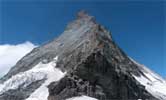|
David Burbridge considers The Future of the Birth Rate. "I conclude that over the course of another 2 or 3 generations, fertility is likely to rise back above the replacement rate, and populations in developed countries will grow again. If infant mortality does not also rise, at some point pressure on resources will lead governments to introduce measures to discourage fertility." Interesting stuff. And of course I must add, David's analysis does not consider the differential birth rates between people with different levels of cognitive ability. When that is considered along with the overall increase in populations, Unnatural Selection is the inevitable result. Whether governments can or will introduce measures to discourage differential fertility remains to be seen.
Joel Grus on the Robotic Nation. Razib paraphrases his point as "When the left side of the Bell Curve is made redundant by robots, what will they do?" Excellent stuff. It is undeniably true that as technology replaces menial labor with machines, the average amount of intelligence and education required to be useful to society (i.e. to get a job) keeps increasing. One solution has been to increase education for everyone, staving off the inevitable.
 It was April 1999, and Wired Magazine's cover story was Lights Out, about a huge potential blackout in the wake of Y2K. Interesting that with all the redundancy that was supposedly created to defend against Y2K problems, we could still have a large "chain reaction" blackout on the East Coast. It was April 1999, and Wired Magazine's cover story was Lights Out, about a huge potential blackout in the wake of Y2K. Interesting that with all the redundancy that was supposedly created to defend against Y2K problems, we could still have a large "chain reaction" blackout on the East Coast.
One way to ameliorate power shortages on Earth is to generate power in space; the BBC reports Russia plans Mars nuclear station. Reading the article it doesn't sound like they're very close. It is interesting to contemplate, eh?
Dave Winer is meeting with presidential candidates in New Hampshire, and has this list of questions for them. I think it is a great list; I would add:
- What do you think about school vouchers? What would you do to improve the quality of public education in the U.S.?
Keep watching Dave's site to stay up on his experiences... (I will :)
Wired asks Who's Holding the Aces Now?, a story about the technology being employed by casinos to detect blackjack card counters. Is this a great use of pattern recognition technology? Well, no, not quite like detecting cancer in digitized microscope slides, but it is cool.
 Speaking of image processing (we were), Gizmodo reports a French company is coming out with a new Tablet PC which has a 14.1" screen. Can't tell if it will have better than 1024x768 resolution, that would make it genuinely useful for medical imaging, COOL! Speaking of image processing (we were), Gizmodo reports a French company is coming out with a new Tablet PC which has a 14.1" screen. Can't tell if it will have better than 1024x768 resolution, that would make it genuinely useful for medical imaging, COOL!
 I'm a sucker for cool Quicktime 3D pictures; check out this one from the top of the Matterhorn at Zermat, Switzerland. [ via Xeni Jardin ] The Matterhorn is 14,691' high, and is one of the most frequently climbed mountains in the world. I'm a sucker for cool Quicktime 3D pictures; check out this one from the top of the Matterhorn at Zermat, Switzerland. [ via Xeni Jardin ] The Matterhorn is 14,691' high, and is one of the most frequently climbed mountains in the world.
Yesterday I asked Do you use an RSS reader? About 12% of you have answered "Uh, what's RSS". So here's my one-paragraph summary:
RSS is a way for web sites to summarize all their content in a single page. Kind of a table of contents for the site (called the site's "RSS feed"). Individual blog entries can be summarized as well as pages. RSS readers are programs which run on your computer to periodically sample the feeds from sites you've specified, and present them kind of like emails. Each time one of the sites has a new item or page, you get a new summary. You can use an RSS reader to easily monitor the contents of a lot of sites. If you see something you're interested in, you simply click to bring up the item in a browser. They're very cool. On PCs, I recommend SharpReader, and on Macs, NetNewsWire.
(P.S. RSS readers are also called "aggregators".)
Hope that helps!
Oh, and by the way, Wired just published an article about RSS as well.
| 



